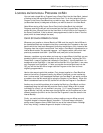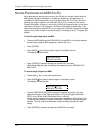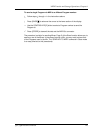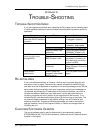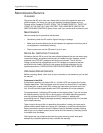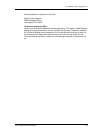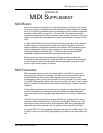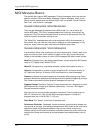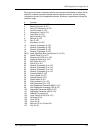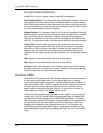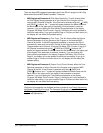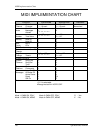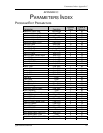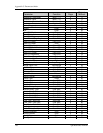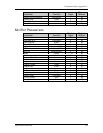
Appendix B: MIDI Supplement
MIDI MESSAGE BASICS
The are two main types of MIDI messages. Channel messages, which are channel-
specific, consist of Voice and Mode messages. System messages, which do not
have a channel number and are received by all units in a system, include Common,
Real Time, and Exclusive messages.
CHANNEL MESSAGES: MODE MESSAGES
There are two messages that determine the MIDI mode (i.e., how a device will
receive MIDI data). The “Omni” message determines how many channels will be
recognized. Omni On means that data from all channels will be received; Omni Off
limits the number of channels, usually to one.
The “Mono/Poly” message deals with voice assignment within the synthesizer. In
Mono mode, only one note at a time plays in response to voice messages; in Poly
mode, as many voices can play notes as are available to play notes.
CHANNEL MESSAGES: VOICE MESSAGES
A synthesizer’s voice is the most basic unit of sound generation. Usually, each voice
plays one note at a time, so the number of notes you can play at one time will be
limited by the available number of voices. MIDI messages that affect voices include:
Note On. Corresponds to a key being pressed down; values range from 000 (lowest
note) to 127 (highest note). Middle C is 60.
Note Off. Corresponds to a key being released; values are the same as note on.
Velocity. Corresponds to dynamics; values range from 001 (minimum velocity) to
127 (maximum velocity). A velocity of 000 is equivalent to a note-off message.
Pressure. Indicates the pressure applied to a keyboard after pressing a key. Mono
pressure (Aftertouch) represents the average amount of pressure applied by all keys.
Poly Pressure produces individual pressure messages for each key.
Program Change. Sending a Program Change command from a sequencer or other
MIDI keyboard can change synth patches automatically. There are 128 Program
Change command numbers.
Also note that not all units number programs consistently. Some number them as
000-127, others as 001-128, and still others arrange programs in banks of 8
programs (such as A1-A8, B1-B8, C1-C8, etc.).
Pitch Bend. This “bends” a note from its standard pitch.
Continuous Controller. Footpedals, breath controllers, and modulation wheels can
vary sounds as you play, thus adding expressiveness. MIDI allows for 64 continuous
controllers (these act like potentiometers in that you can choose one of many
different values) and 58 continuous/switch controllers (these can act like continuous
controllers but some are assumed to choose between two possible states, such as
on/off).
132 QS7/QS8 Reference Manual



